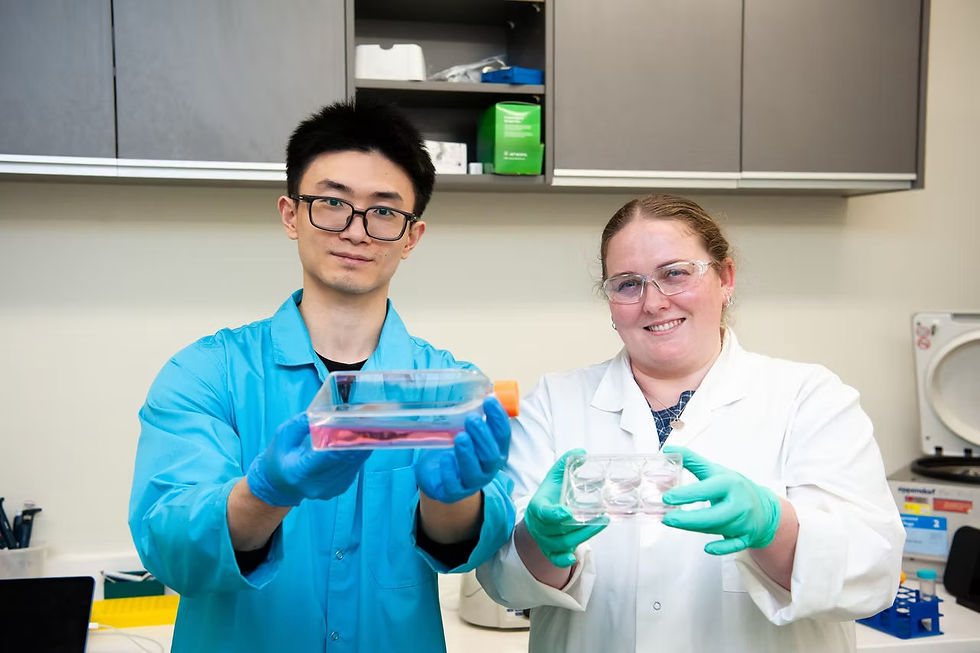TRENOS SiGINT: Hybrid Meat Gets a $3M Fix—Is This the Burger You’ll Actually Want to Eat?
- JC - Analyst
- Jul 31, 2025
- 1 min read
JC Analyst - 24 July 2025

New Zealand and Singapore are co-investing NZD $3 million into solving hybrid meat’s biggest problem: nobody’s really buying it yet. The project, co-led by University of Canterbury and the National University of Singapore, is building an affordable, flavour-forward hybrid protein that grows real animal cells on plant-based scaffolds made from agri-waste. The goal? Deliver a burger that tastes like the real deal, digests more easily, and doesn’t come with climate guilt or a $25 price tag.
Human Factor
Most consumers still don’t trust alt-proteins. They want meat that tastes good, is easy on the wallet, and doesn’t trigger food sensitivities. This project is finally listening. By engineering hybrid meat to be hypoallergenic, more affordable, and flavour-enhanced using real meat cells grown on edible plant scaffolds, researchers are taking direct aim at consumer pain points. For busy families, flexitarians, and Gen Z snackers, it could mean buying protein for what it is—not what it isn’t.
TRENOS Metrics Snapshot
Signal | Data Point |
TikTok Views | 4.3M (hashtag #hybridmeat in past 90 days; flavour complaints trending) |
Retail Footprint | Experimental only; not yet on shelf |
Ingredient Format | Cultured animal cells + plant-based scaffolds |
Product Range | Ground meat prototypes (burger, mince), fish in development |
Consumer Segment | Flexitarians, Gen Z, food allergy households |
Brand Origin | NZ–Singapore collaborative research cluster |
Export Status | Future-facing; part of NZ’s value-add protein roadmap |
Trend Classification | APT (Alternative Protein Thing), Biomanufacturing, Food Systems Resilience |
System Pressure Point | Taste-fatigue in plant-based sector; allergen risks in traditional meats |




Comments